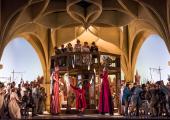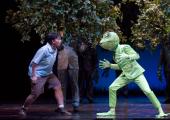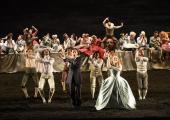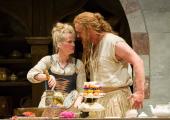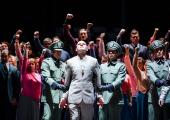Béatrice et Bénédict, Glyndebourne

Vin ordinaire all round in what should be a sparkling caprice
Locations count for little in most of Shakespeare's comedies. Only a literal-minded director would, for instance, insist on Messina, Sicily as the setting for Much Ado About Nothing. In Béatrice et Bénédict, on the other hand, Berlioz injects his very odd Bardolatry with lashings of the southern Italian light and atmosphere he loved so much. So turning it all grey as Laurent Pelly does and putting everyone into boxes except the loving enemies who think outside them - get it? - goes against the grain.


